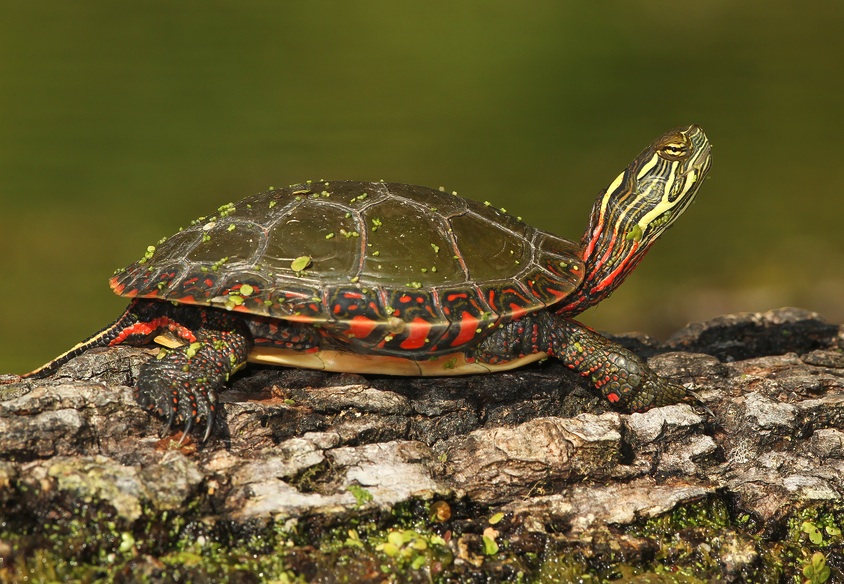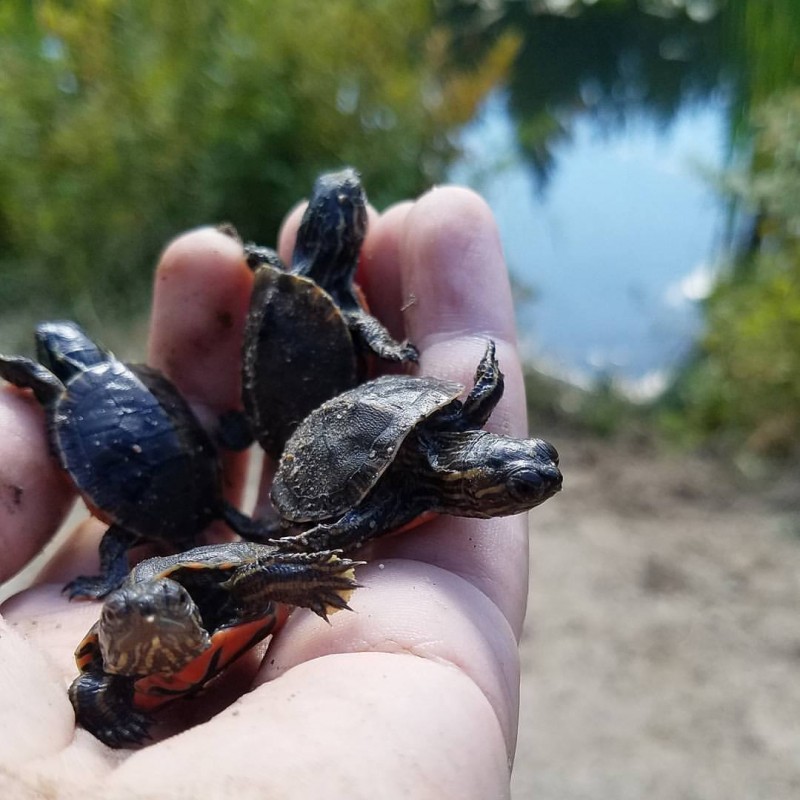 Science is all about questions. The type of questions depends on your specialty, and in my area of Ecology, we ask and answer questions about how an animal's environment affects its life.
Science is all about questions. The type of questions depends on your specialty, and in my area of Ecology, we ask and answer questions about how an animal's environment affects its life.
Ecology can be studied using lots of different living things. Some people study the ecology of animals while some study the ecology of microorganisms like bacteria that are too small for us to see with just our eyes. These studies, and all the ones in between, provide important information about how living things work together in the world around us.
Studying Painted Turtles
For my research, I study painted turtles. On top of being really cute, these turtles provide a really interesting system for studying ecology.
Painted turtles live all across the United States, from hot places like Alabama to cooler climates like Idaho. Since the same kind of animal lives in many different places with different weather patterns, we can compare how they interact with their environments. Do painted turtles that live in the cold behave differently than those who live where it’s hot?

In addition to their distribution across the country, painted turtles have something called “Temperature-dependent sex determination.”
In many animals, and in humans, whether something is male or female is determined by its chromosomes or tiny clusters of DNA. If you have two X-chromosomes, you’re a female, and if you have one X-chromosome and one Y-chromosome, you are male.
However, in turtles, sex is determined by the temperature that the eggs experience while they are in their nest. There are three different patterns of temperature-dependent sex determination. However, in painted turtles, eggs that experience warmer temperatures turn into females while eggs that experience cooler temperatures turn into males. An easy way to remember this is the saying “hot chicks and cool dudes”!
My Research
Temperature-dependent sex determination presents an interesting opportunity for scientists to ask questions. Because these turtles experience such different climates, their eggs are also developing at different temperatures. Eggs in Idaho grow in much cooler temperatures than eggs in Alabama, so does that mean Idaho would produce a lot more male turtles than Alabama. These are the types of questions my research focuses on.
The knowledge gained when I answer these questions can be applied to other areas and contribute to our overall understanding of nature.







